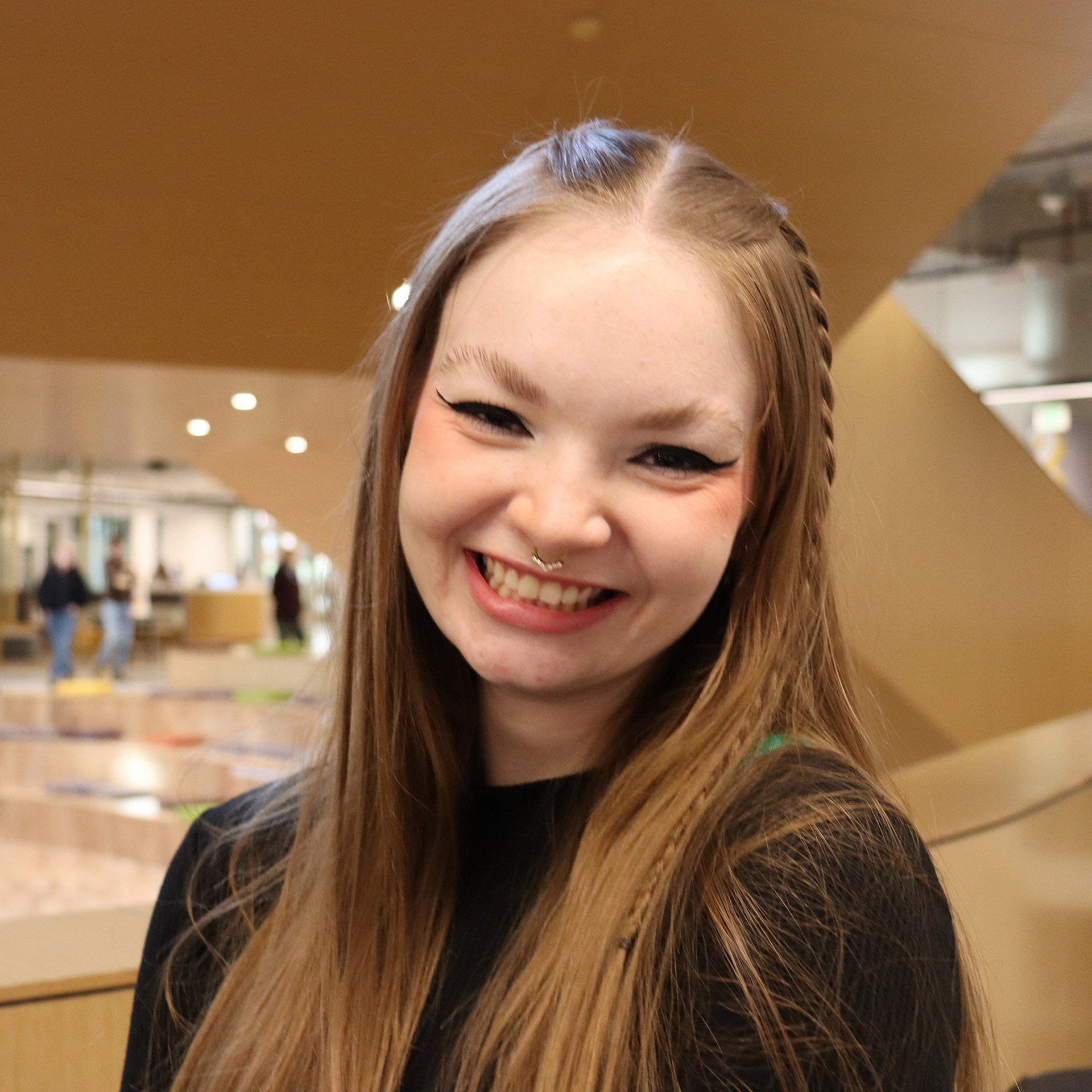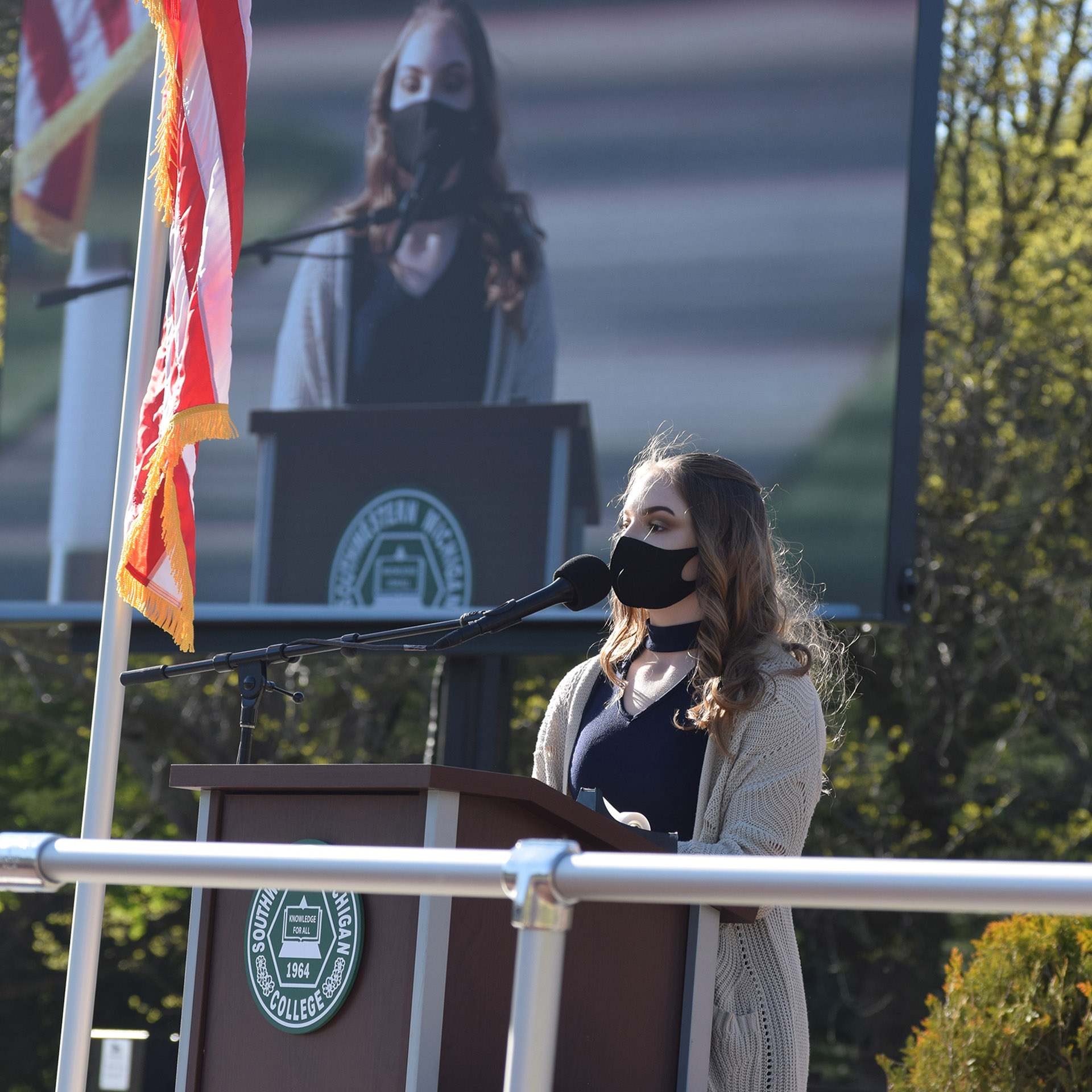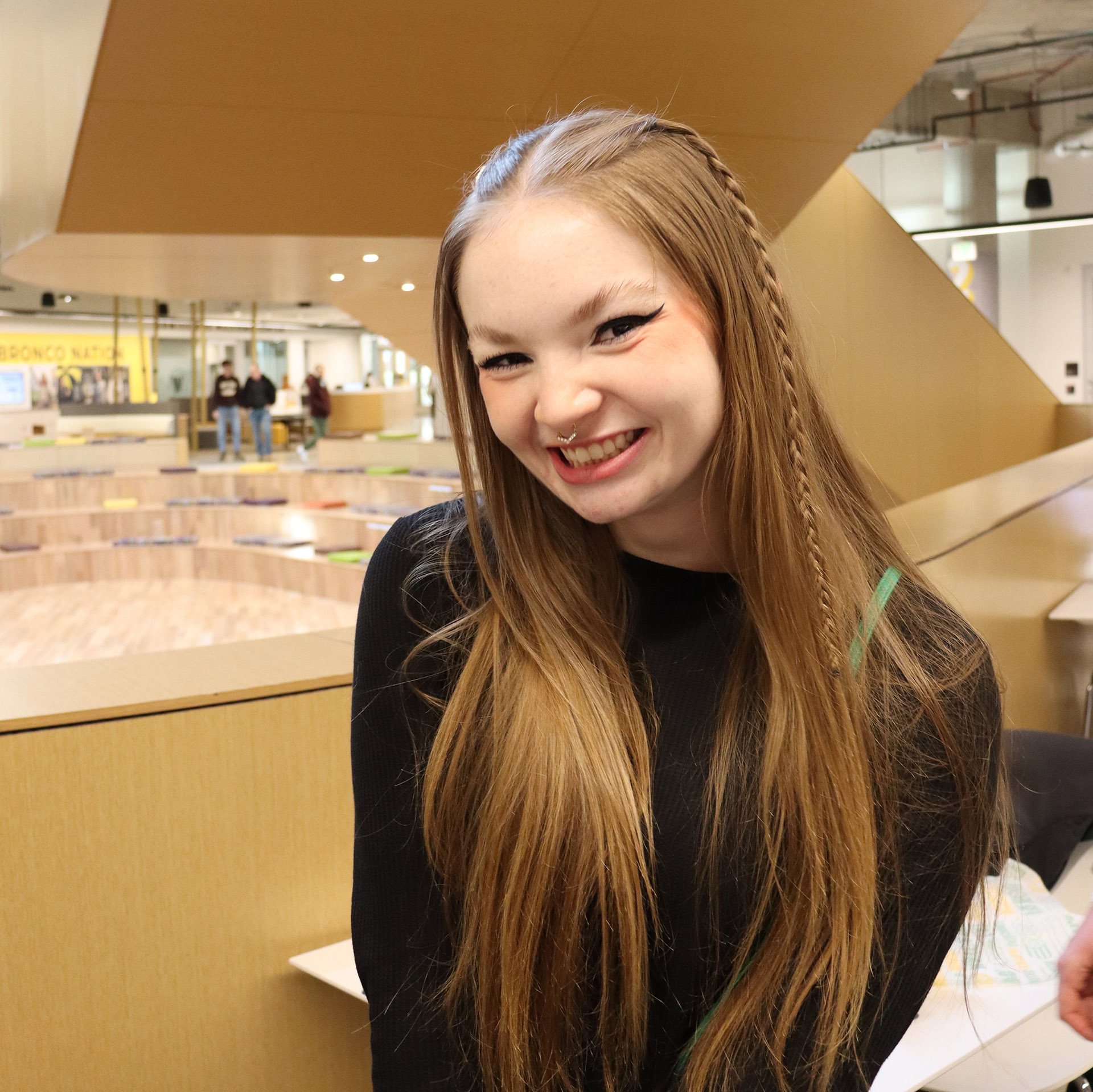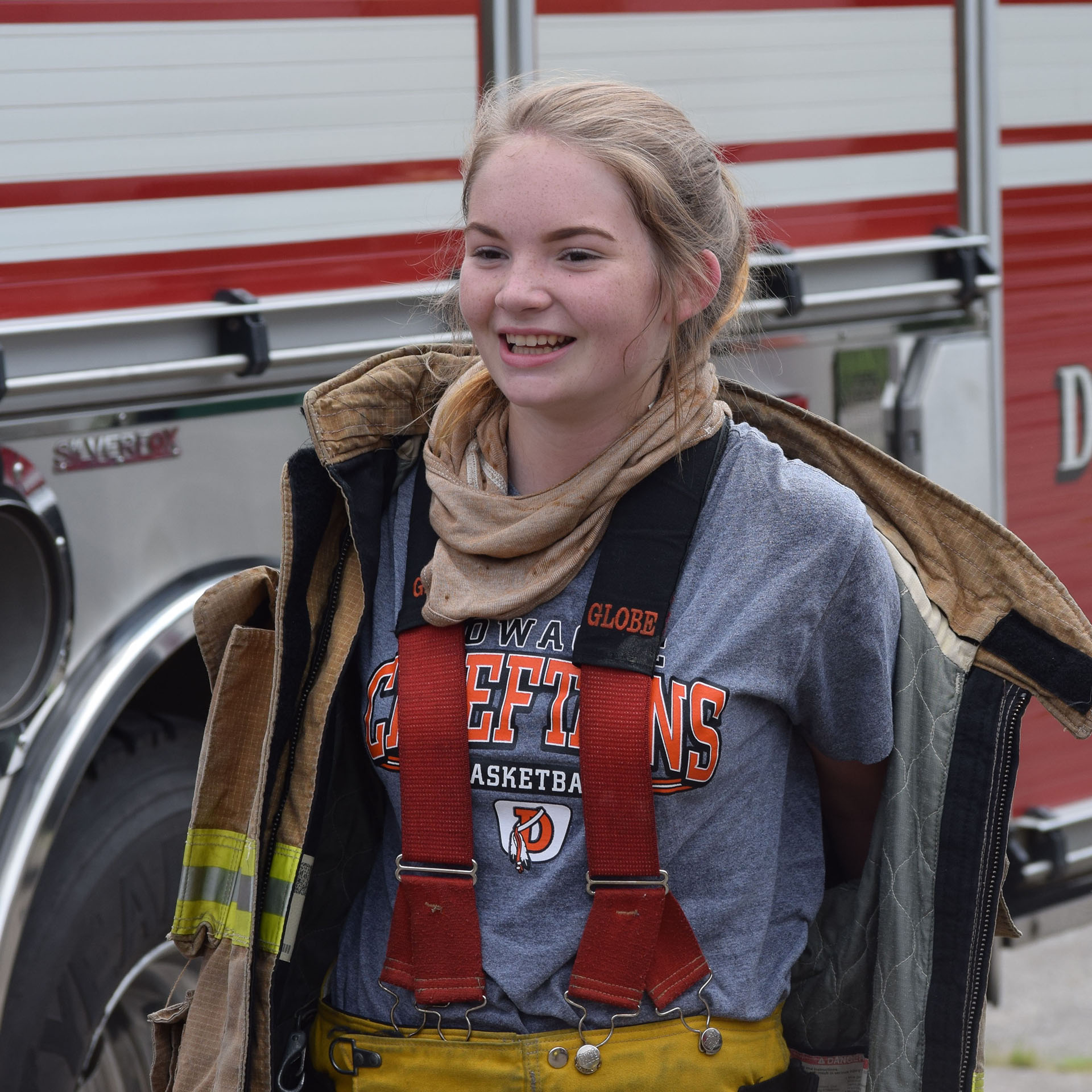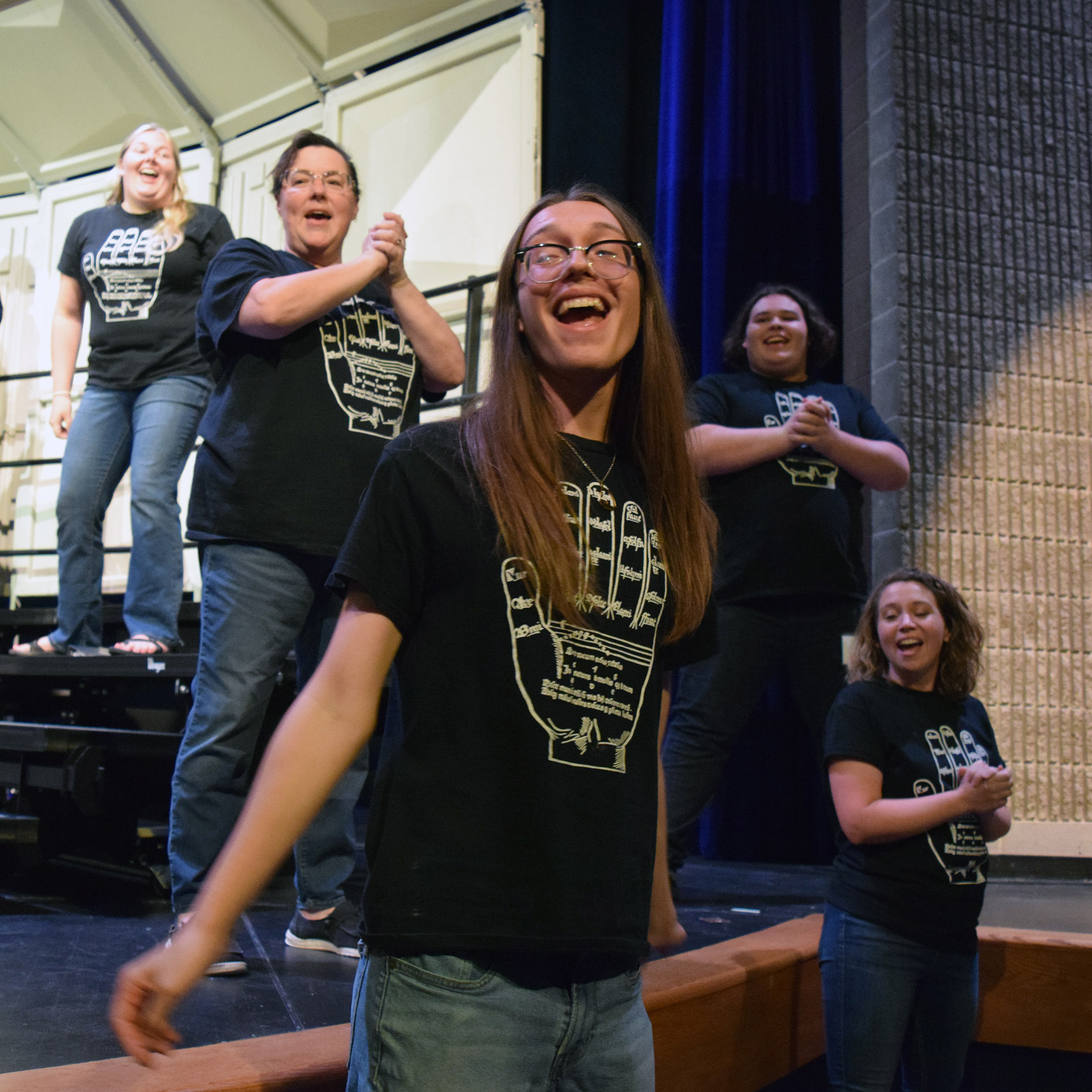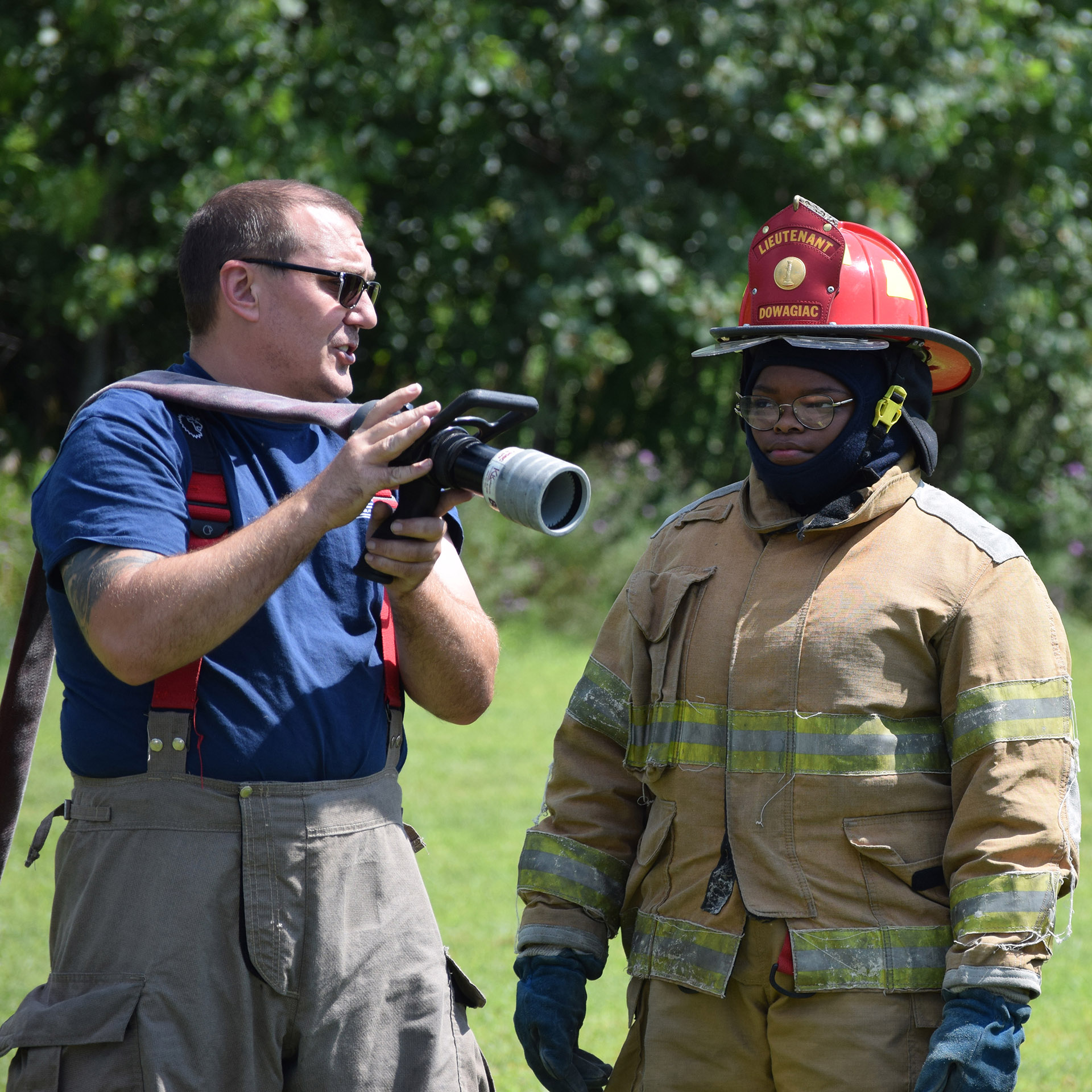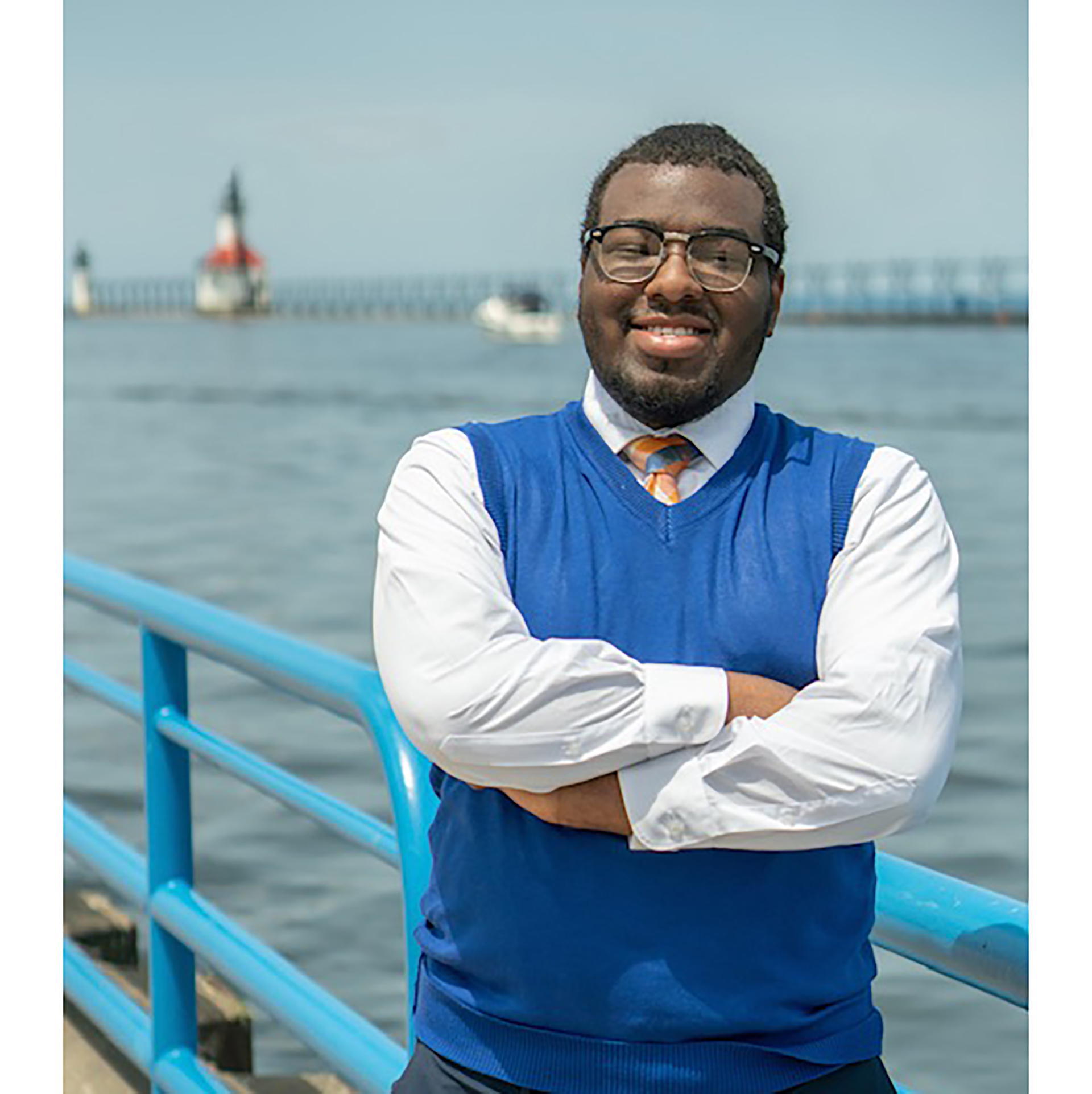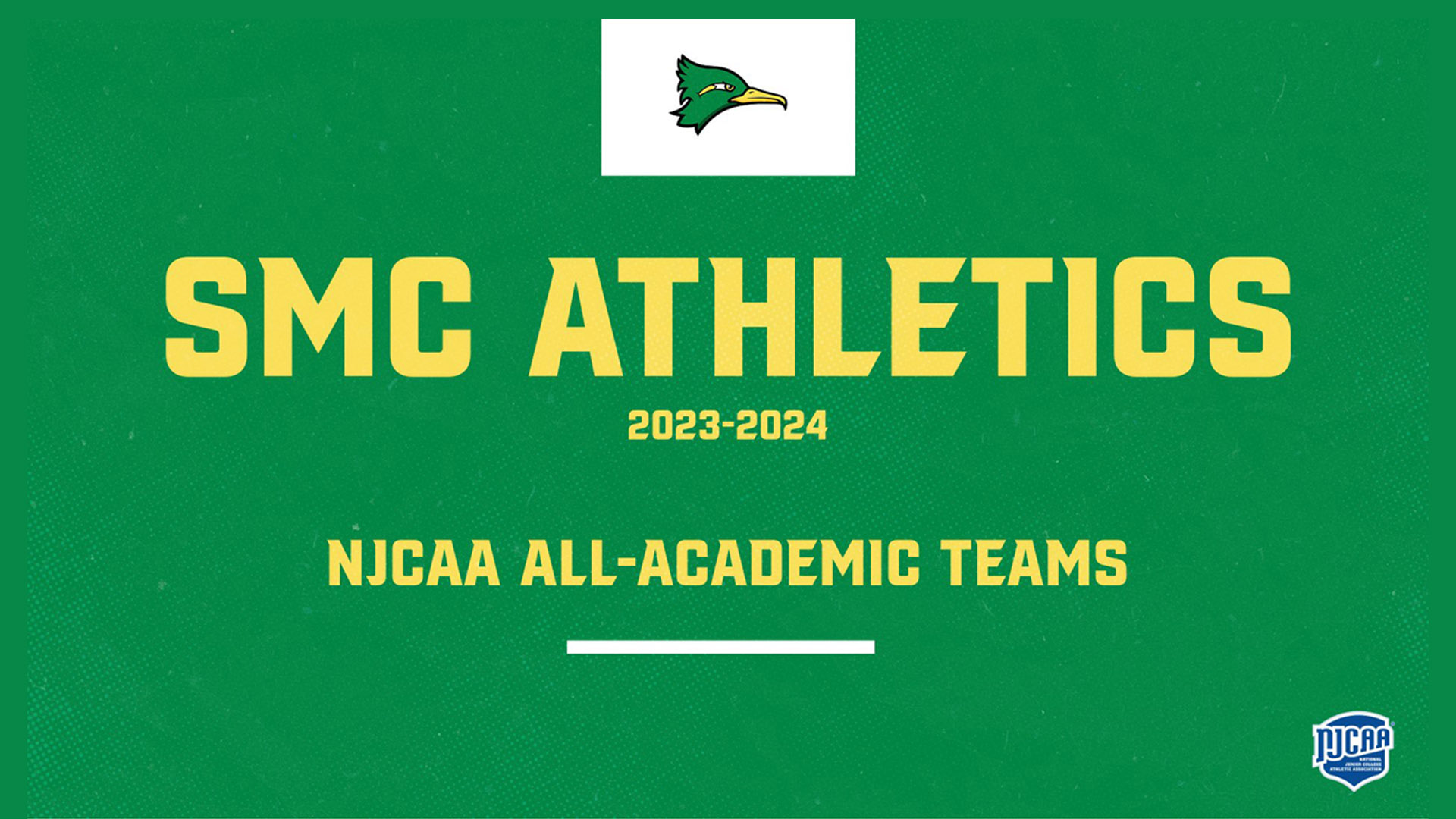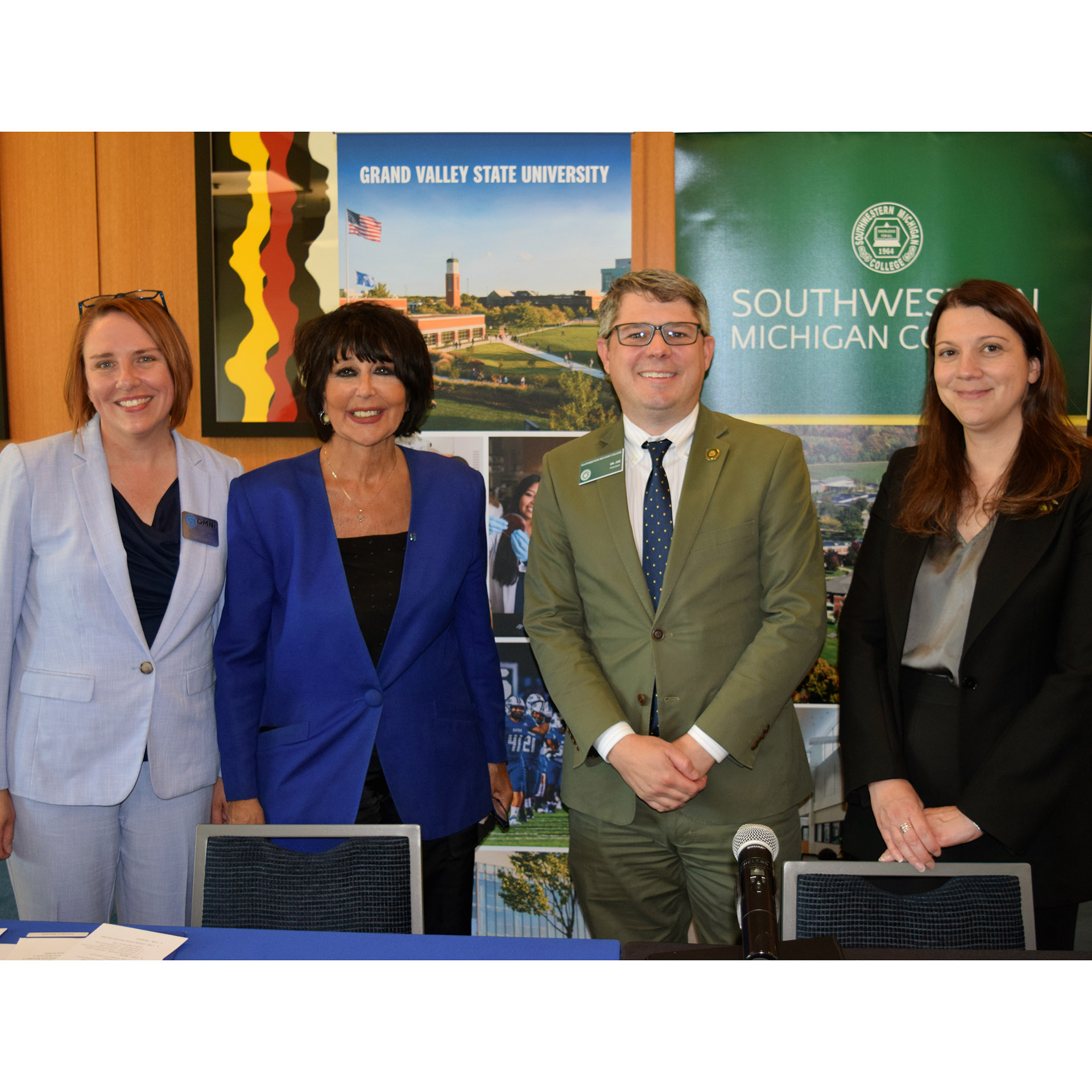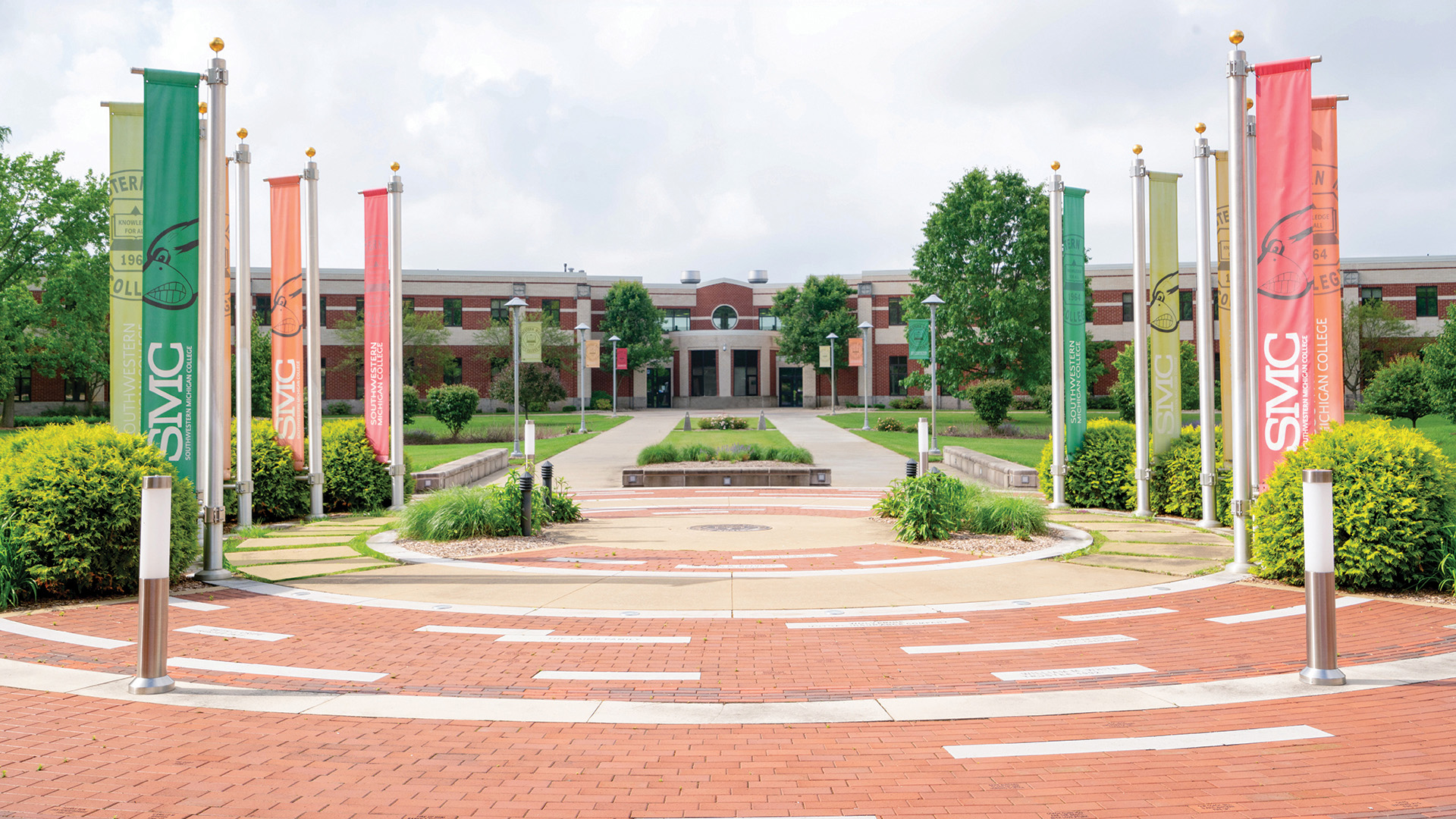
News
2021 Speaker Broadens Her Interest in Science
Published on August 8, 2024 - 9 a.m.
Since speaking at Southwestern Michigan College’s outdoor Outstanding Graduate Reception in May 2021, Jossalyn Rogalski was awarded “Distinguished Senior in Biology” last spring at Western Michigan University, from which she graduated in December debt-free.
In January, Cass County’s 2016 spelling champion and Dowagiac’s 2020 salutatorian began a WMU master’s degree in geography to continue using her Medallion scholarship.
As a member of WMU’s Lee Honors College, she received one of the largest merit-based scholarships in higher education, valued at approximately $90,920 over four years.
The recipient of the Darrin Williams Memorial Scholarship, the highest award bestowed by SMC’s Math/Science Department, graduated from Western with a bachelor’s degree in biology and a minor in chemistry.
Rogalski, 21, also studied environmental justice in Syracuse and Niagara Falls, N.Y., where she met a fellow Roadrunner, Kai Sopraseuth from Cassopolis.
Her bachelor’s degree thesis research on tobacco product waste saw her walking to hundreds of homes and apartments in Dowagiac, Sister Lakes and Twin Lakes since December 2022 to complete public surveys.
“I hoped to gain insight into why people litter these items so frequently, as well as the best policies to mitigate this waste issue,” she said. “I originally wanted to create an interactive map showing the abundance of this litter in our region, but I was advised that would be too difficult to complete at my academic level, so I hope to complete a project like this in the future.”
That’s where geography comes in.
“What I ultimately want to do is still a question to myself,” she said. “I still would love to do anything hands-on with animals. Zoology has always been my number-one focus and interest in school, but along the way I’ve become more interested in everything to do with science.
“Mapping skills I will learn from (geography) courses are going to benefit me with whatever biology type of career I choose. I can map practically any topic, from endangered species habitats to contaminated sites. Geography ties in to conservation and land-restoration goals I have in mind. As long as I’m in a field that’s beneficial to the environment, people, plants and animals, I’m going to be happy.”
Her New York experience with graduate students exposed Rogalski to mapping systems, which were being used to document places impacted by lead poisoning, overlaid with regions that had high levels of violence and lower education levels.
“They showed the correlation between possible lead poisoning and learning deficiencies,” she said. “Mapping ties into every possible area of society and science, so geography could be a good route for me to pursue in the future. We mainly focused on environmental justice, such as how the practice of redlining negatively impacts lower-income or minority areas. We learned a lot about I-81 and how that highway impacted residents’ health when lead paint chipped off and affected soils. I’m keeping up with the social media pages of all the organizations with which we worked because it’s so fascinating. I’d definitely like to go back someday and see how they’re doing.”
That cigarette butt is not biodegradable
“Driving down the road I always see people throw out cigarette butts, which I collect in my spare time,” Rogalski said. “It saddens me, so I wanted to see what the impacts were of leaving this waste in the environment. What type of chemicals were released? I did background research and wrote a very detailed paper over the summer, then spent a year editing my paper and completing my research.”
“I had no GIS (Geographic Information System) courses in my background,” she said, “so I was advised to do the survey instead to gain insight on the public’s view of cigarette waste, to see what people do and don’t know about the after-effects of these products on the environment and what the public thought would be the best route to reduce this waste.”
“I learned the public believes more education and more trash receptacles might be the best routes,” she said. “I do believe more education would be beneficial because many people I spoke with viewed traditional cigarette waste as a biodegradable product. But my research proved this to be very false. They’re plastic-like and take many years, if not decades, to fully degrade. These micro-plastics can absorb toxins from the burning of the cigarette. I successfully got 150 responses, but I walked to hundreds more homes. People in Dowagiac especially did not want to assist in my research. I got many more no’s than yes’s.”
SMC’s “homey feel”
Rogalski, the first person in her family to graduate from college, “grew up” at SMC.
“I was lucky enough to become part of the Early Middle College program at 15, in ninth grade at Dowagiac Union High School. I will be eternally grateful. I did not have to spend a single dollar of my own to graduate with my associate degree.
“If students are concerned about costs, dedication and a strong work ethic can lead to success. That’s certainly the case for me.
“Another reason I love SMC is because it truly does feel like home, which is rare for most students at college.
“I grew up attending school in Dowagiac. All extra-curricular events seemed to be held there on campus. I can recall Young Writers, Math-A-Rama, the spelling bee and countless Educational Talent Search activities from sixth grade until high school graduation,” including Weird Science camp in 2015 and Fire Academy in 2017.
“I have fond memories of SMC,” Rogalski said. “I met some great people I’m still friends with today. The faculty seemed to care about us and got to know us, probably because of the close-knit classroom feel.”
